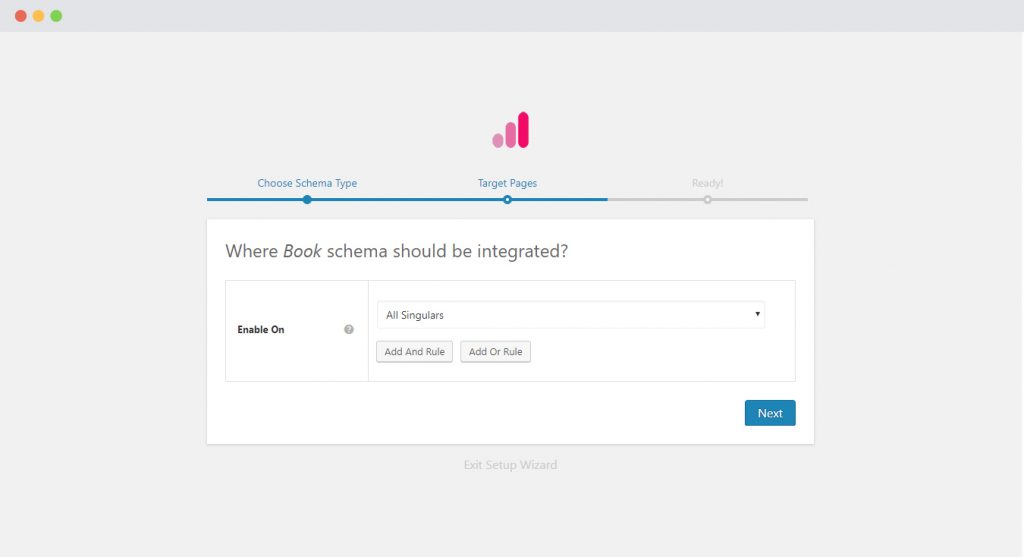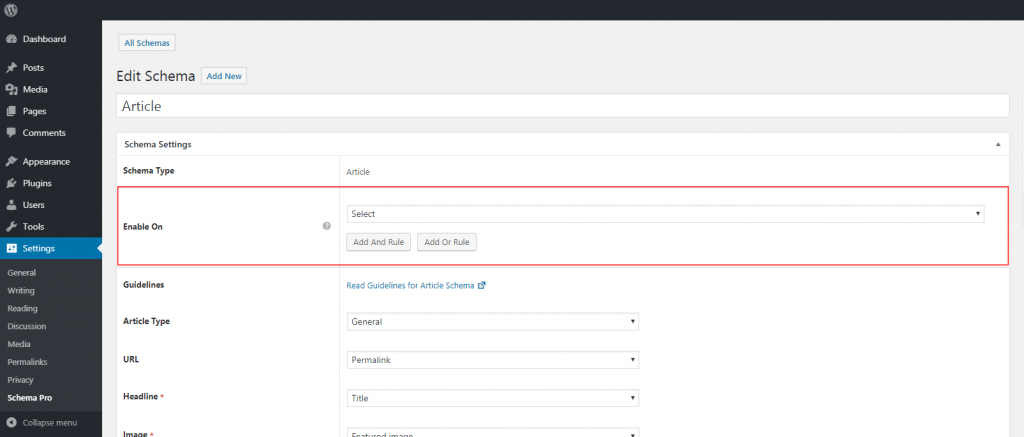- Add an Extra Field for a Schema Type
- Enable/Disable Schema Markup
- Add Ratings Using Shortcode
- Disable a Specific Schema Markup
- Add Schema Markup on Subcategories
- Disable the White Label Settings
- Disable Corporate Contact Schema
- Remove Home List Item from Breadcrumblist Schema
- Remove Shop Item Link on Product Page
- What is the future of Schema Pro now that SureRank has launched?
- How to Use Schema Pro with SureRank
- Test a Schema Snippet
- Mapping Your Schema Fields
- Add an Extra Field for a Schema Type
- How to Use the Schema Pro plugin?
- All-in-one Schema Pro plugin
- Map Required fields with Custom Fields
- Create a Custom Fields
- Target Specific Areas of the Website
- Enable/Disable Schema Markup
- Add Ratings Using Shortcode
- Implement Breadcrumbs
- Disable Schema Markup on AMP Pages/Posts
- Plugin Settings for Schema Pro
- Restrict Schema Pro Settings for Specific User Roles
- Remove Home List Item from Breadcrumblist Schema
- Delete Your Schema Data
- Regenerate Schema
- Configure Schema on a Single Page/Post
- Skip Rendering Invalid Schema
- Handle Errors & Warnings in a Testing Tool
- Configure WooCommerce
- Repeater Fields Controls on Pages/Posts
- WooCommerce Review Field Schema Markup
- Custom Schema Markup
- Compatibility with External plugins
- Rollback Schema Pro Plugin to Previous Version
- How to White Label Schema Pro
- Important Update: Sitelinks Search Box Deprecation
- Knowledge Graph with Schema Pro
- Configuring WooCommerce with Schema Pro Plugin
- How to Add a Schema markup for an Article on your website?
- Difference Between the Free and Pro Plugin?
- How to map fields with custom fields from third party plugins?
- Accept User Ratings from Users
- Update Schema Pro
- Register Your Copy of Schema Pro
- Organization Type in the Setup Wizard
- Schema Pro Setup Wizard
- Getting Started With Schema Pro
- How To Install Schema Pro Plugin
- Schema Markup for an Event page
- Schema Markup for a Review page
- Schema Markup for a Local Business Page
- Schema Markup for a Service Page
- Schema Markup for a Product Page
- Schema Markup for a Course page
- Schema Markup for a Recipe Page
- Schema Markup for a Person/ About Page
- Schema Markup for a Job Posting Page
- Schema Markup for a Video Object
Target Specific Areas of the Website
It is usually a tiring task when you have thousands of pages on your website. But, Schema Pro has made that easy!
You can include and exclude a number of pages and posts with a few clicks.
- Create a schema and select the type you wish to proceed with.
- Add pages/posts you wish to add this Schema on. You can also set an exclusion rule to hide schema on particular pages/posts.

Here you can select all the places you wish to use this schema on. You can add multiple
Let us take a quick look at the options you’ll see in the drop down list:
- All Singulars: This includes all custom type posts and pages you have on your website. Selecting this option will enable the schema on all your custom type pages and posts.
- All Posts: This includes all your posts; including custom type posts. When you select this option, this schema will be enabled for all the posts on your website.
- All Pages: This includes all the pages in your website. When selected, this option enables this schema for all the pages on your website.
- Specific pages and posts: This option lets you target particular pages/posts or categories on your website. Selecting this option will give you another box below where you can start entering the name of the page, post or category and select it from the list that appears. This will make sure that the schema will be applied to only the selected pages/posts/ category.
Very often you want to show a markup for a particular category but prefer excluding a page in it. This is where you can use exclusion rules.
In case you already have an existing schema markup and wish to edit the target page settings, you can do so by editing the schema and set target pages as shown below.

You can now be sure that the schema will show up only for those pages of posts you’ve selected above!
We don't respond to the article feedback, we use it to improve our support content.